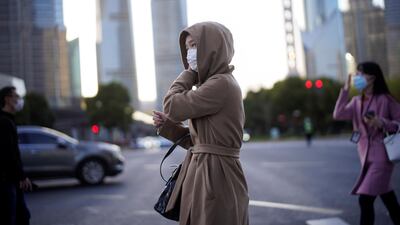Emerging markets are witnessing the "strongest pace" of capital flows on positive news related to the development of a Covid-19 vaccine, according to the latest report from the Institute of International Finance.
“We see positive news on Covid-19 vaccines as the modern-day equivalent of the 2009 China stimulus, allowing the world to return to the status quo before the virus ... delivering a powerful boost to global demand,” the IIF said.
The institute said the pace of non-resident portfolio flows to emerging markets was at its quickest in many years.
It said the fourth quarter had recorded the strongest growth in capital flows since the first three months of 2012, after factoring in robust offshore bond issuance.
Global pharmaceutical companies such as Pfizer, Moderna and AstraZeneca have achieved major breakthroughs in recent weeks in the development of a vaccine for the treatment of the virus.
Vaccines being tested by Pfizer and Moderna have proved to be more than 90 per cent effective.
Earlier this year, at the height of Covid-19 outbreak, the Washington institute recorded large capital outflows from emerging markets.
Non-resident portfolio flows were tepid in the months that followed.
However, recent developments on the vaccine front have triggered the interest of investors in assets in emerging economies.
“The exodus of capital from emerging markets is now firmly in the rear-view mirror and robust inflows look set to continue.”
The IIF also said flows to emerging markets outside of China were at their strongest since the second quarter of 2014.
The coronavirus pandemic has tipped the global economy into its worst recession since the 1930s.
The International Monetary Fund expects global output to shrink 4.4 per cent this year and recover only modestly in 2021.


